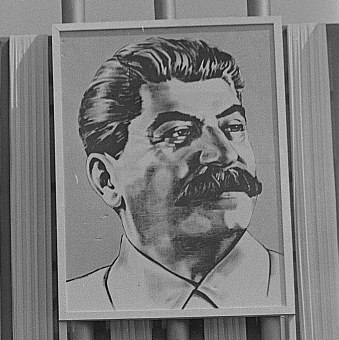(Eurasia Daily Monitor) The end of a full year after Vladimir Putin was elected president on March 4, 2012, coincided very closely with the 60th anniversary of Josef Stalin’s death, which greatly shocked the traumatized Soviet society of 1953 but never became sufficient closure to the era of terror and totalitarian mobilization. A stream of jubilee commentary has recently been examining the lasting legacy of Stalinism to the Russian public longing for “firm-hand” paternalism. But it is even more striking how this legacy is organic to the substance and style of Putin’s regime, which seeks to subjugate every aspect of social life to central control and even insists on adopting a school history textbook that would be free from contradictions (Colta.ru, February 28). Increasingly, this cultural congruence is sharply rejected by the old liberal intelligentsia and the new “creative classes”—forcing the anti-modern Putinism on the defensive. While a solid majority of Russians see Putin as personally responsible for the plight of the country, his approval ratings—something Stalin never had to be concerned about—are steadily dropping (Moskovsky Komsomolets, March 1; Levada.ru, February 28).
Putin expected the unwavering admiration of the “masses” and cannot figure out why this has not materialized during his presidency. Nonetheless, he has grasped the need to regain control over the country’s unexpectedly turbulent political agenda. He has initiated so many pieces of legislation and public debates that the opposition’s Coordination Council feels hard pressed to respond to so many simultaneous attacks on liberal values, while the elites are puzzled about the real intentions behind the campaign for “repatriating” their fortunes (Novaya Gazeta, February 26). In this chaotic slide toward a quasi–patriotic police state, legislation on changing the order of electing the State Duma, introduced by Putin last Friday—cancelling the draft bill proposed a year ago by then-President Dmitry Medvedev—may have particular significance (Kommersant, March 1). It only makes sense to push such an initiative if Putin has opted to dismiss the compromised Duma and stage new elections, in which the corruption-mired United Russia party would contest only half of the seats, while the Putin-led People’s Front would capture most of the other half in single-member constituencies (RIA Novosti, Gazeta.ru, March 1). […]
See the full article | © The Eurasia Daily Monitor









